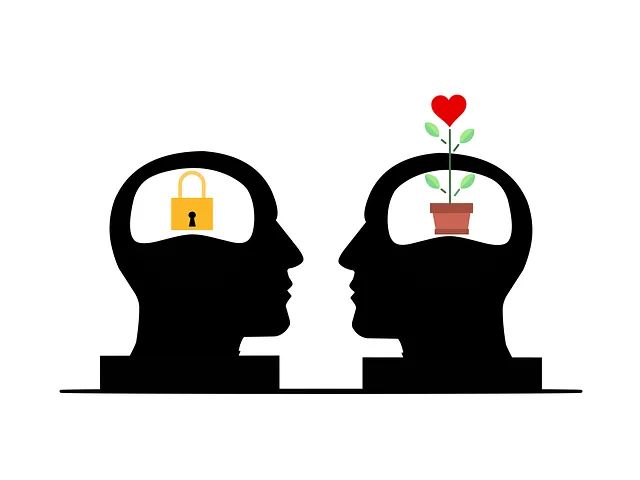The Kaiser Permanente behavioral health center Aurora prioritizes cultural sensitivity in mental healthcare to effectively serve a diverse community. By understanding and respecting patients' unique identities, they tailor support for historical trauma and systemic barriers, enhancing resilience. Through initiatives like Mental Health Policy Analysis, Community Outreach Programs, and active listening, the center builds trust and accessibility. Their holistic approach combines empathetic care with culturally competent techniques, personalizing treatments for optimal mental health outcomes.
Cultural sensitivity is an essential aspect of providing inclusive mental healthcare. This article explores the concept, highlighting best practices through the lens of the Kaiser Permanente Behavioral Health Center Aurora, a pioneer in culturally competent care. We delve into strategies for therapists to integrate cultural competence into daily sessions, ensuring effective treatment for a diverse range of clients. By examining these approaches, we aim to improve access and outcomes in mental healthcare services, mirroring the successful model at Kaiser Permanente Aurora.
- Understanding Cultural Sensitivity in Mental Healthcare
- Kaiser Permanente Behavioral Health Center Aurora: A Model for Inclusive Practice
- Strategies for Incorporating Cultural Competence in Everyday Therapy Sessions
Understanding Cultural Sensitivity in Mental Healthcare

Cultural sensitivity is a cornerstone in providing effective mental healthcare, especially within diverse communities like those served by Kaiser Permanente behavioral health centers, such as the Aurora location. It involves recognizing and appreciating the unique cultural backgrounds, beliefs, and values of each patient, ensuring their mental health needs are met with understanding and tailored support. This approach is crucial in building resilience among individuals facing various challenges, including historical traumas and systemic barriers.
At the Kaiser Permanente behavioral health center Aurora, efforts towards cultural sensitivity go beyond basic awareness. It includes implementing programs that promote Mental Health Policy Analysis and Advocacy, ensuring policies reflect community needs. Additionally, engaging in Community Outreach Program Implementation allows direct interaction with diverse populations, fostering trust and accessibility in mental healthcare services.
Kaiser Permanente Behavioral Health Center Aurora: A Model for Inclusive Practice

The Kaiser Permanente Behavioral Health Center Aurora stands as a beacon of inclusive mental healthcare practice. This center has pioneered approaches that seamlessly integrate cultural sensitivity into every aspect of patient care, setting a benchmark for the industry. By fostering an environment where empathy builds bridges instead of barriers, they’ve revolutionized how mental health services are delivered.
Their model emphasizes the importance of understanding and respecting diverse cultural backgrounds and beliefs, tailoring interventions to meet individual needs. This holistic approach not only enhances therapeutic outcomes but also significantly improves patient satisfaction. Moreover, Aurora’s strategies focus on boosting client confidence, which is essential for successful therapy. By combining these empathy-building techniques with robust risk management planning—a crucial aspect of mental health professional training—the center ensures a safe and supportive space for all individuals seeking care, regardless of their cultural or ethnic identity.
Strategies for Incorporating Cultural Competence in Everyday Therapy Sessions

Incorporating cultural competence into everyday therapy sessions at a Kaiser Permanente behavioral health center in Aurora requires intentional strategies that honor and understand clients’ diverse backgrounds, beliefs, and experiences. One key approach is to actively listen to clients, allowing them to share their unique perspectives and stories. This involves creating a safe, non-judgmental space where individuals feel empowered to express themselves openly, fostering trust and authentic connection.
Additionally, therapists can integrate culturally relevant techniques and interventions tailored to specific ethnic or cultural groups. For instance, promoting Self-Care Practices aligned with clients’ cultural traditions can enhance their sense of belonging and support Mental Wellness. Encouraging mindfulness practices, community engagement, or traditional healing arts might contribute to Self-Esteem Improvement, reflecting the client’s identity and values. Such personalized approaches ensure that therapy resonates with each individual’s unique needs, ultimately leading to more effective and meaningful healing journeys.
Cultural sensitivity is a cornerstone of effective mental healthcare, ensuring that diverse patients receive tailored, inclusive support. As demonstrated by the successful model at the Kaiser Permanente Behavioral Health Center Aurora, integrating cultural competence into everyday practice not only improves patient outcomes but also fosters an environment where every individual feels respected and understood. By adopting strategies discussed in this article, mental health professionals can navigate the complex landscape of cultural differences, ultimately revolutionizing care delivery and enhancing therapeutic relationships.






